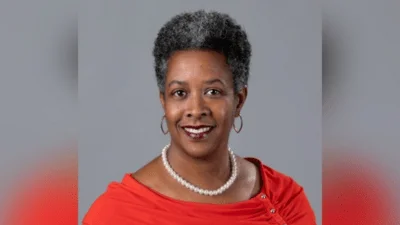Tulane medical students and mentor investigate racial health disparities | Tulane University
Tulane medical students and mentor investigate racial health disparities | Tulane University
Three years after the COVID-19 pandemic exposed racial and ethnic health disparities nationwide, those disparities continue to exist in American communities of color.
Black Americans ages 18-49 are twice as likely to die from heart disease as white Americans, according to the CDC. Hypertension, the leading preventable risk factor for premature death worldwide, is more prevalent in Black Americans than any other group, and fewer Black Americans receive adequate blood pressure medication than white Americans.
At Tulane University, a diverse team of medical students has worked alongside Dr. Keith C. Ferdinand, the Gerald S. Berenson chair of preventative cardiology at Tulane University School of Medicine, to examine racial and ethnic health disparities and, in some cases, provide solutions.
“We have to really understand the barriers patients face and the social factors that affect their day-to-day life.” Tina Reddy
The students’ research ranges from examining the history of legislation around sugary drinks to a program that used text alerts to remind community members to take blood pressure medications. This Black History Month, the collection of research was published in the Cardiac Disparities Special Edition in American Heart Journal Open.
“Simply waiting for the intermittent physician office visit will not address the poor levels of hypertension control seen in racial and ethnic minority populations,” Ferdinand said. “A just society will not allow these heath inequities to persist, and we need to have everyone work together, not only physicians, but also advanced practice nurses, public health officials, medical students, community members, and patients working as integrated team-based approach.”
In the primary pilot study, Text My BP Meds NOLA, Ferdinand worked with medical students Tina Reddy, Pavan Guduri, Sai Nedunchezhian and Madeline Wegener to increase blood pressure medication adherence among non-Hispanic Black adults by texting them reminders. The program worked, with the text alerts “significantly improving” medication adherence and helped participants lower their blood pressure without changing medications.
“In a population that’s often left by the wayside, this study was vital to investigating how we might work toward equitable health outcomes,” Guduri said.
Another student, second-year medical student Vi Nguyen, authored Primordial Prevention: Reducing consumption of sugar-sweetened beverages in racial/ethnic populations, a literature review that examines current and historic legislation of sugared drinks and the associated health outcomes.
In a third study, Influence of Neighborhood-level Social Determinants of Health on a Heart-Healthy Lifestyle Among Black Church Members, MPH candidate Amanda Hercules and PhD Candidate Farah Allouch helped survey Black New Orleanians about existing access to sidewalks, recreation facilities, and other neighborhood infrastructure that could improve heart health.
Nedunchezhian was also first author on a fourth study analyzing racial disparities in outcomes of treatments for lower extremity peripheral arterial disease. The research also included work by Wegener and Reddy.
Reddy, a third-year medical student completing an MPH in Social, Behavioral, and Population Sciences, said her work in the field with Ferdinand only enhanced the “cultural humility” training she’s received while studying at Tulane School of Medicine.
“Dr. Ferdinand mentors so many of us students and gives us the opportunity to see what’s going on in our communities firsthand,” Reddy said. “We have to really understand the barriers patients face and the social factors that affect their day-to-day life.”
And yet, while Reddy is proud of the work they’ve accomplished, she said there is more work to be done.
“We’ve barely scratched the surface,” Reddy said. “We live in a vibrant community in New Orleans, and I’m constantly learning from and interacting with people from all different backgrounds. But we’ve barely put a dent in the work that needs to be done to dismantle the structural inequities in our healthcare delivery system.”
Original source can be found here.




 Alerts Sign-up
Alerts Sign-up